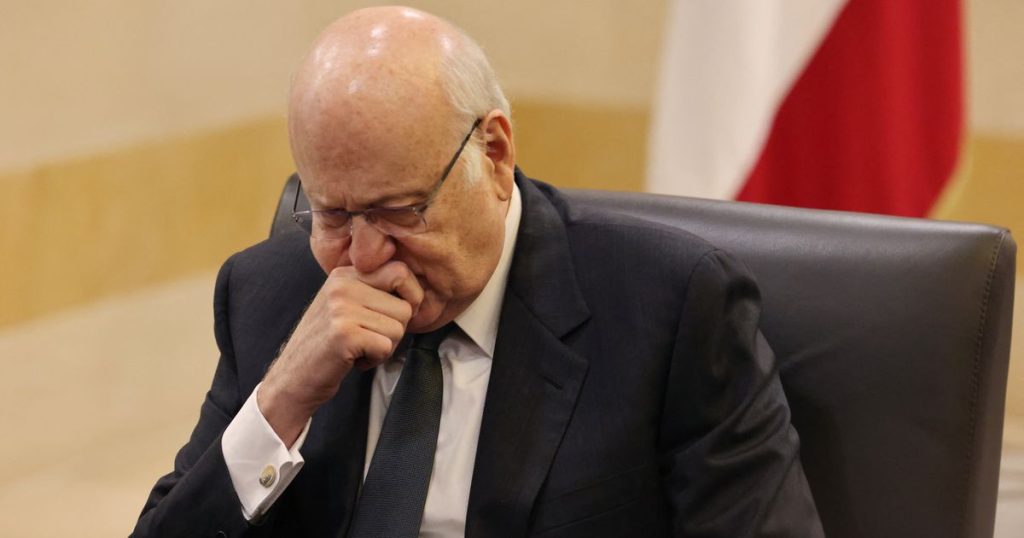Lebanon is currently facing a dire situation with up to a million people displaced by Israel’s attacks, according to Prime Minister Najib Mikati. The government is working to provide basic needs like shelter and food to those affected, but the number of displaced people could be much higher. These displacements, especially from Beirut’s suburbs and the Bekaa Valley, mark the largest in Lebanese history and do not account for the over a thousand people killed in the last two weeks. More than 70,000 people have fled Lebanon, with many seeking refuge in Syria to avoid a potential ground invasion.
The massive displacement is putting strain on Lebanon’s infrastructure, particularly water and electricity, exacerbating the already dire situation for civilians. International aid agencies are working to provide assistance to the displaced, delivering water, blankets, mattresses, and hygiene kits, as well as offering psychological first aid. In facilities run by the U.N. agency UNRWA, hundreds of Lebanese, Syrian, and Palestinian refugees are seeking shelter, but schools serving as shelters are already at capacity, and hospitals are overwhelmed with casualties.
Efforts are being made by France and the U.S. to secure a temporary cease-fire to allow for negotiations with Israel, aligning with Mikati’s push for a diplomatic solution. However, Netanyahu has stated that Israel will continue striking Hezbollah until all objectives are achieved. President Joe Biden has voiced concerns about an all-out war in the Middle East and is urging for a diplomatic approach, but the U.S. continues to provide unwavering support to Israel in the form of weaponry, which has been a point of contention for many Lebanese Americans.
The situation in Lebanon remains volatile, with displaced persons seeking refuge in overcrowded shelters and facing shortages of essential resources. The ongoing attacks by Israel have resulted in a humanitarian crisis, with thousands of families displaced and casualties mounting. The international community is calling for a cease-fire to prevent further escalation and to enable negotiations for a peaceful resolution. However, the conflict shows no signs of abating, leaving the people of Lebanon in a state of uncertainty and fear. The urgent need for humanitarian assistance is critical to address the growing needs of the displaced population and to prevent further loss of life.








